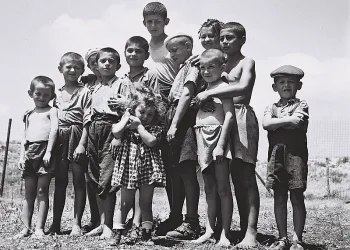Europe Discusses Lebanon, Ukraine, and Global Security Threats
What role should the G7 play when international tensions rise? This question dominated discussions as Defence Ministers from the G7 countries met, with Europe’s leaders focusing on crises in Lebanon and Ukraine.

Lebanon’s Urgent Situation
Lebanon remains a major focal point, especially with the recent surge in violence and political instability. The High Representative highlighted the immediate need for a ceasefire in the region, emphasizing the killing of Yahya Sinwar as a pivotal moment. This tragic event, according to the Representative, opens a crucial window for negotiations aimed at releasing hostages and working toward a long-term political solution.
Lebanon’s sovereignty and institutional stability are critical to restoring peace, and European leaders are pushing for Lebanese authorities to elect a president to strengthen governance. The High Representative underscored the importance of international support, particularly to ensure the Lebanese army can secure its borders effectively.
However, there’s concern over the ongoing attacks on the United Nations Interim Force in Lebanon (UNIFIL). The G7 leaders condemned these assaults, stressing that peacekeepers must be respected globally.
Given the escalating threats, the Representative suggested that UNIFIL’s mandate might need revision to respond more effectively to the evolving security challenges.
Ukraine Remains a Central Focus
While Lebanon took center stage in the morning discussions, the G7 ministers planned to shift their attention to Ukraine in the afternoon. With President Zelenskyy’s recent presentation of a “victory plan” at the European Union Council, the focus is on bolstering Ukrainian defense capabilities.
The Representative hinted at detailed talks on how the G7 could support and implement this plan, considering the ongoing conflict and the strategic importance of Ukraine to European security.
Humanitarian Concerns and International Coordination
The High Representative also expressed concern over humanitarian issues, particularly in Gaza. While Israeli Prime Minister Netanyahu continues military operations, the Representative sees this as a critical moment to negotiate a ceasefire, push for hostage release, and increase humanitarian aid levels, which are currently at historic lows.
The Representative mentioned that recent calls from the U.S. Secretaries of State and Defense urged Israel to allow more aid into Gaza, underscoring international consensus on the need for immediate humanitarian action.
UNIFIL’s Role Under Scrutiny
The discussion also delved into the limitations of UNIFIL’s current mandate. The Representative explained that while UNIFIL patrols can detect threats like Hezbollah’s rocket launchers, they lack the authority to act independently.
Instead, they must alert the Lebanese army, which has proven to be a limited response. Expanding UNIFIL’s mandate could be an option, but such a move requires a United Nations Security Council decision—a process the Representative admitted could be complex.
The Representative further clarified that despite Israel’s request to withdraw UNIFIL, this decision lies with the UN Security Council, not the Secretary-General. European leaders emphasized the importance of reviewing and possibly expanding UNIFIL’s powers to enhance its effectiveness in the region.
What it Means
As the G7 meeting continues, Defence Ministers acknowledge the importance of coordination and dialogue among member states, some of whom are also permanent members of the UN Security Council.
The ongoing discussions about Lebanon and Ukraine reflect the complex global security environment Europe faces, and the G7 aims to play a key role in shaping the response.
Sources: THX News & European Union.








